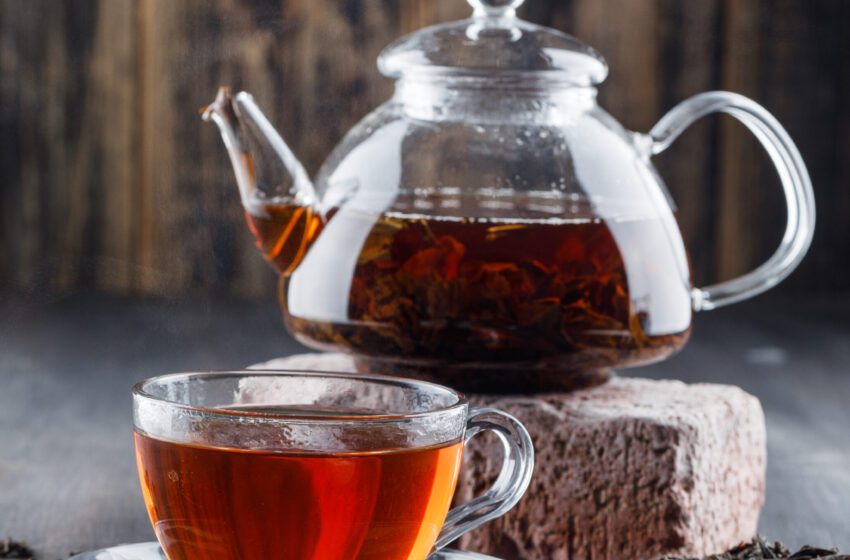What is Black tea ?
Black tea is a fully oxidized tea variety made from the leaves of the Camellia sinensis plant. Its rich, robust flavor and dark color set it apart from other teas like green and white tea, which are either minimally oxidized or not at all. Originating in China and India, black tea has become one of the most popular beverages worldwide, enjoyed both plain or with additives like milk, sugar, or lemon. Beyond its pleasant taste and energizing caffeine boost, black tea offers numerous health benefits and a rich nutritional profile.
Health Benefits of Black Tea
- Boosts Heart Health: Black tea is rich in flavonoids, antioxidants that support heart health by reducing inflammation, lowering cholesterol, and improving blood vessel function. Studies suggest that regular black tea consumption can decrease the risk of heart disease, including heart attacks and stroke.
- Enhances Mental Alertness: With a moderate caffeine content, black tea provides a mental boost without the intense jolt often associated with coffee. Caffeine, combined with the amino acid L-theanine in tea, helps improve focus, alertness, and cognitive function.
- Supports Weight Management: Certain compounds in black tea, particularly polyphenols, may enhance weight management. They help improve gut health, which plays a crucial role in maintaining a healthy metabolism and processing fats more efficiently.
- Improves Gut Health: The polyphenols in black tea act as prebiotics, nourishing beneficial gut bacteria and supporting the microbiome. A balanced microbiome promotes digestion, immune health, and mood regulation.
- Reduces Risk of Cancer: While research is ongoing, black tea contains antioxidants like catechins and polyphenols that have been linked to a reduced risk of certain types of cancer. These compounds combat oxidative stress and reduce cellular damage, a factor in cancer progression.
- Lowers Blood Sugar Levels: Black tea may aid in managing blood sugar levels, especially after meals. Studies show that the polyphenols in black tea can improve insulin sensitivity, helping to stabilize blood sugar levels, which is particularly beneficial for those with type 2 diabetes.
- Strengthens Bones: Regular black tea consumption may support bone health due to its fluoride content and beneficial phytonutrients, which help reduce the risk of osteoporosis and bone-related ailments, particularly in older adults.
Nutritional Profile of Black Tea
Black tea is rich in various bioactive compounds, with the following primary nutrients:
- Polyphenols: Black tea is particularly high in flavonoids and catechins, which provide powerful antioxidant effects, aiding in the reduction of inflammation and protection against chronic diseases.
- Caffeine: With about 40-70 mg of caffeine per 8 oz cup, black tea offers a moderate energy boost without the intense jolt, and it can help increase alertness and mental clarity.
- Amino Acids: Black tea contains L-theanine, which promotes relaxation and focus, especially when combined with caffeine.
- Vitamins and Minerals: Black tea offers small amounts of potassium, magnesium, and fluoride, contributing to bone and dental health. While the amounts are minimal compared to daily requirements, they contribute to overall well-being.
- Zero Calories (when served plain): Black tea has virtually no calories, fats, proteins, or carbohydrates, making it an excellent choice for those managing calorie intake or looking for a low-calorie beverage option.
How to Enjoy Black Tea
You can enjoy black tea in various ways to suit your taste and health goals. For an authentic experience, brew it plain with hot water and steep for 3-5 minutes. Add lemon or ginger for an antioxidant boost, or a splash of milk for creaminess. Black tea can also be a base for chai when mixed with spices like cinnamon, cardamom, and cloves.
In summary, black tea is not just a delicious, aromatic drink but a powerhouse of health benefits, including heart and gut health support, mental alertness, weight management, and cancer protection. Its moderate caffeine content, combined with antioxidant properties, makes it an ideal beverage for a balanced lifestyle.

Black tea recipe
Ingredients
1 cup of water
1 teaspoon of loose black tea leaves (or 1 tea bag)
Sugar, honey, or milk (optional, to taste)
Instructions
Boil the Water: Heat 1 cup of water to a rolling boil.
Add Tea Leaves or Bag: Place the tea leaves (or tea bag) into a teapot or cup.
Steep the Tea: Pour the boiling water over the tea leaves. Let it steep for about 3-5 minutes, depending on how strong you want it.
Strain or Remove the Tea Bag: If using loose leaves, strain the tea into a cup. If using a tea bag, simply remove it.
Optional Add-Ins: Add sugar, honey, or milk as desired.
Serve: Enjoy your warm, comforting cup of black tea.
OTHER RECIPES




d2dn06